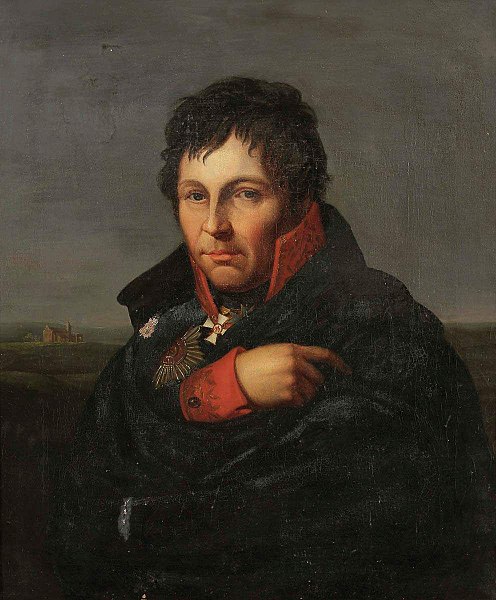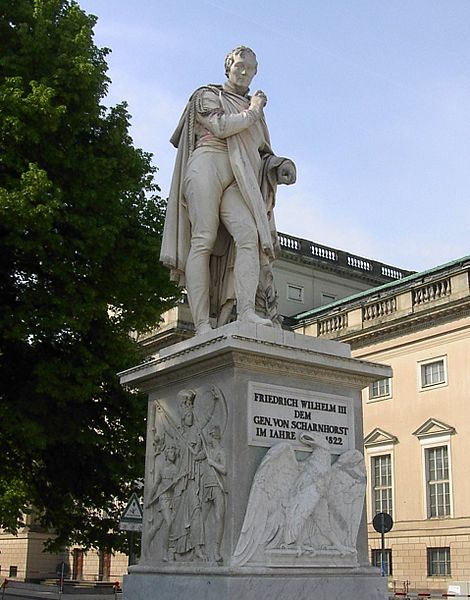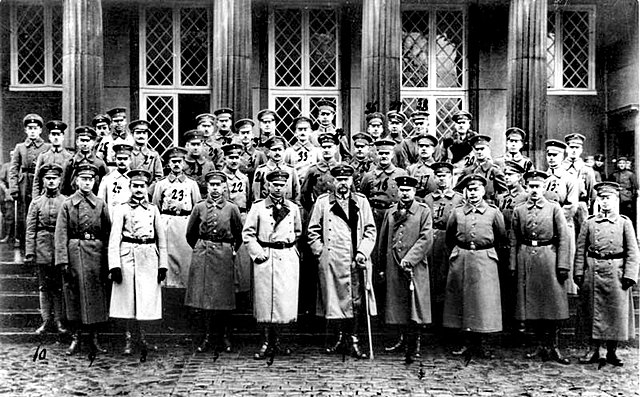Gerhard Johann David von Scharnhorst was a Hanoverian-born general in Prussian service from 1801. As the first Chief of the Prussian General Staff, he was noted for his military theories, his reforms of the Prussian army, and his leadership during the Napoleonic Wars. Scharnhorst limited the use of corporal punishments, established promotion for merit, abolished the enrollment of foreigners, began the organization of a reserve army, and organized and simplified the military administration.
Gerhard von Scharnhorst
Scharnhorst's grave at the Invalidenfriedhof, Berlin
Statue of Scharnhorst on the Unter den Linden, Berlin
The German General Staff, originally the Prussian General Staff and officially the Great General Staff, was a full-time body at the head of the Prussian Army and later, the German Army, responsible for the continuous study of all aspects of war, and for drawing up and reviewing plans for mobilization or campaign. It existed unofficially from 1806, and was formally established by law in 1814, the first general staff in existence. It was distinguished by the formal selection of its officers by intelligence and proven merit rather than patronage or wealth, and by the exhaustive and rigorously structured training which its staff officers undertook.
Great General Staff building on the Königsplatz, Berlin in 1900
General Helmuth von Moltke the Elder, Chief of the General Staff from 1857 to 1888
William II with his generals
The German General Staff in Kassel, November 1918







